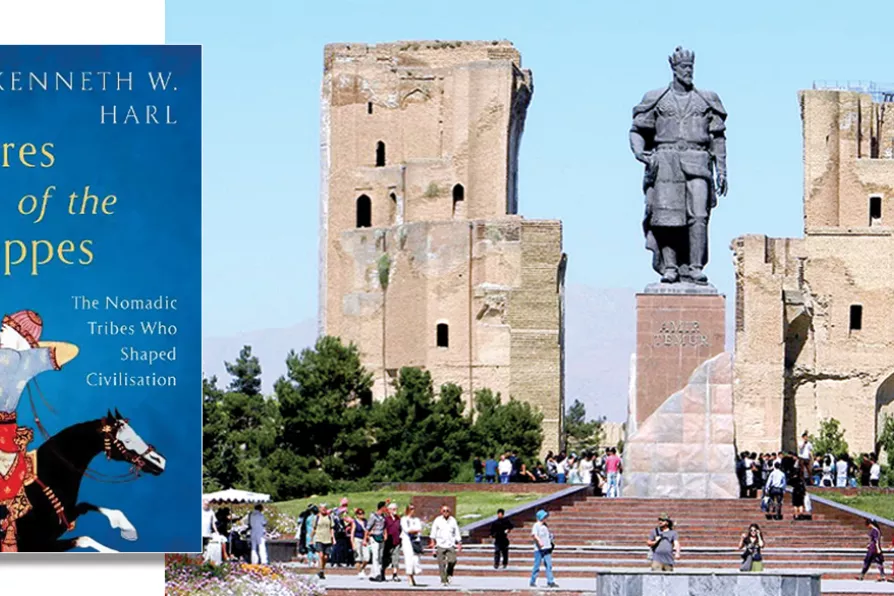RITA DI SANTO draws attention to a new film that features Ken Loach and Jeremy Corbyn, and their personal experience of media misrepresentation

 NATION BUILDER: Statue of Timur (Tamerlane) by Ivan Jabbarov in his place of birth Shahrisabz, Uzbekistan. Behind the ruins of the Ak-Saray palace finished in 1404 a year before Timur’s death - built over 24 years it was destroyed in the 16th century Abdullah Khan II, the Khan of Bukhara. It is, since 2000 a UNESCO World Heritage site
[Ljuba brank/CC]
NATION BUILDER: Statue of Timur (Tamerlane) by Ivan Jabbarov in his place of birth Shahrisabz, Uzbekistan. Behind the ruins of the Ak-Saray palace finished in 1404 a year before Timur’s death - built over 24 years it was destroyed in the 16th century Abdullah Khan II, the Khan of Bukhara. It is, since 2000 a UNESCO World Heritage site
[Ljuba brank/CC]
Empires of the Steppes – the nomadic tribes who shaped civilisation
By Kenneth W Harl, Bloomsbury, £30
LIKE many other readers, I imagine, the history I learned at school was almost exclusively modern European, with its birthplace in Greek and Roman antiquity. In recent times historians have been moving away from such western eurocentrism.
Peter Frankopan’s The Silk Roads offered us a very different perspective on our civilisation with the centre of gravity shifted to China and the Far East. Harl’s fascinating history takes us further back in time to demonstrate that our modern world has been very much shaped by the nomadic peoples of the great steppe lands of the east in ways few of us are aware of. It was they who facilitated the emergence of the Silk Road as a vital trading and communications conduit between Asia and western Europe.
The nomadic peoples of the Eurasian steppes dominated human development in the Near and Far East as well as much of Europe for around 45 centuries. From the first steppe nomads who domesticated the horse and learned how to exploit the vast grasslands of Eurasia, they helped create the peoples and languages of Europe and the Far East we are familiar with today.

BRENT CUTLER is intrigued by the imperialist, supremacist and contradictory history of a word that is used all too easily

GORDON PARSONS is enthralled by an erudite and entertaining account of where the language we speak came from

RON JACOBS salutes a magnificent narrative that demonstrates how the war replaced European colonialism with US imperialism and Soviet power











